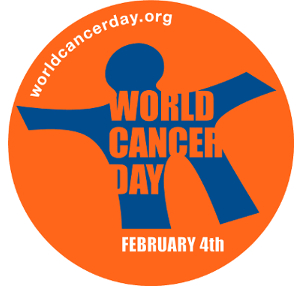
Wednesday the 4th of February is World Cancer Day.
Mouth cancers are often overlooked, and early diagnosis is essential.
Do you know what to look out for?
- A mouth ulcer that doesn’t heal after three weeks
- A persistent red or white patch in the mouth or throat
- An unexplained lump in the mouth or on the lip
- Unexplained bleeding in the mouth
- Unexplained numbness of the mouth or on the lip
- Unexplained loose teeth
- A persistent neck lump
- A cut or wound in the mouth that doesn’t heal after a few weeks
Remember, most mouth conditions are NOT cancerous. If you are worried, please see your GP or dentist.
Prevention is better than cure
It’s an old saying, but a true one. A person’s risk of developing cancer can be greatly reduced by maintaining a healthy lifestyle.
- Stop smoking (we cannot stress this one enough!)
- Reduce alcohol intake
- Avoid chewing tobacco, paan, betel quid, shisha and other tobacco containing products (see NHS choices for more information)
- Eat a balanced diet, including plenty of fruits and vegetables
- Exercise regularly
If you want to quit smoking but don’t know where to start, the NHS Smoke-free service can provide the tools, advice and support to help you stop smoking for good.
Mouth cancer and HPV
Human Papilloma Virus (HPV) is a family of viruses that affect the skin and mucous membranes (that’s the soft, moist tissue you might find in the mouth, throat, cervix, vagina or anus). These viruses are incredibly common. There are over 100 strains of HPV and about 40 of those are sexually transmitted. Some strains cause abnormal tissue growth resulting in warts, genital warts and verrucas, but a few strains cause changes to the infected cells which can lead to cancer.
HPV is well known to cause cervical cancer in women. It’s the reason that women over 25 receive regular cervical smears. However, HPV has also been linked to mouth cancer. What’s more, as the number of mouth cancer cases in the UK increases year on year, the proportion of those linked to HPV is also on the rise. The virus is transmitted mostly through oral sex.
Be safe. HPV is transmitted by skin to skin contact. Using a condom or dam (a square of plastic that rests over the female genital area) every time you have oral sex can reduce the risk of infection. Remember, most sexually active people will get some form of HPV over the course of their lives. Most infections clear within two years, often without any symptoms, and only a small proportion of those with HPV will develop cancer. However, being aware of the risks and practising safe sex can reduce your chances even further.
If you have recently been diagnosed with cancer of the mouth, head or neck, our helpline can put you in contact with former patients who understand.
